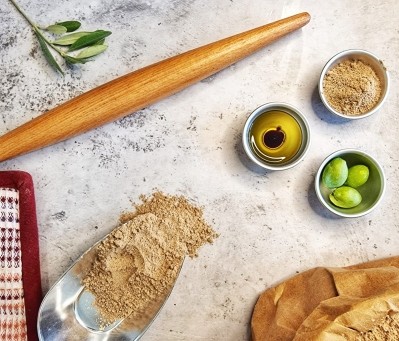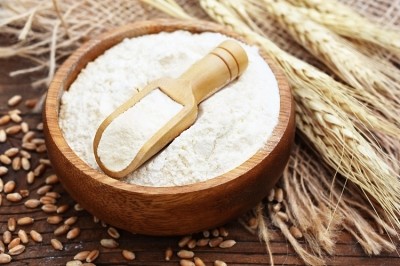Flour upcycled from olive waste a ‘revolution’ for industry
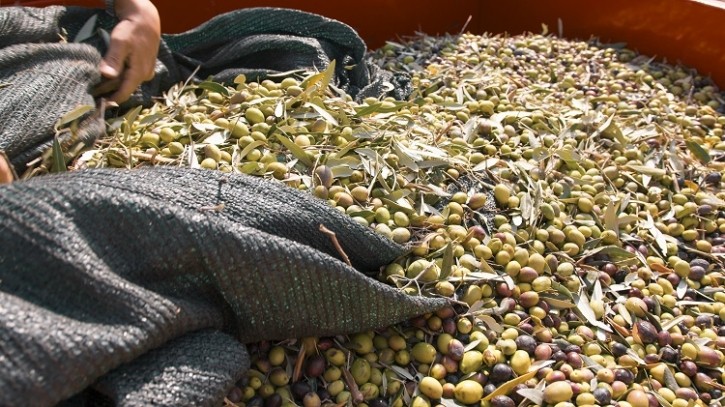
Olive oil is big business, with more than three million metric tons produced every year. And yet the sector is enormously wasteful: to produce olive oil, just 15% of the fruit is used. The remaining semi-solid waste known as pomace quickly oxidises, becomes toxic, and is mostly discarded.
Innovators in Israel are working to upcycle this would-be waste to achieve a different outcome. Having patented an ‘advanced’ technology that prevents oxidisation, start-up PhenOlives is turning this olive oil side stream into flour for the food industry.
“We’re the first company to develop a solution to stop the oxidisation of olive oil waste,” explained Len Pader, VP business development at PhenOlives. “This is a revolution for the olive oil industry.”
The problem with olive waste…and how to fix it
At olive oil mills, olive-laden trucks regularly roll in to drop off large loads of raw material for oil production. What many won’t know, is that laden trucks also frequently leave the mill. And they’re not all carrying oil.
Pomace, a side stream of the olive oil production process, is removed in this way. Because pomace quickly oxidises, it usually goes to landfill. A proportion can be disposed of next to crops, but it’s known to contaminate the soil. The smell is also ‘terrible’, recalled Pader.
This waste makes up most of the farmer’s production, meaning that ultimately, farmers are paid for just 15% of what they produce.
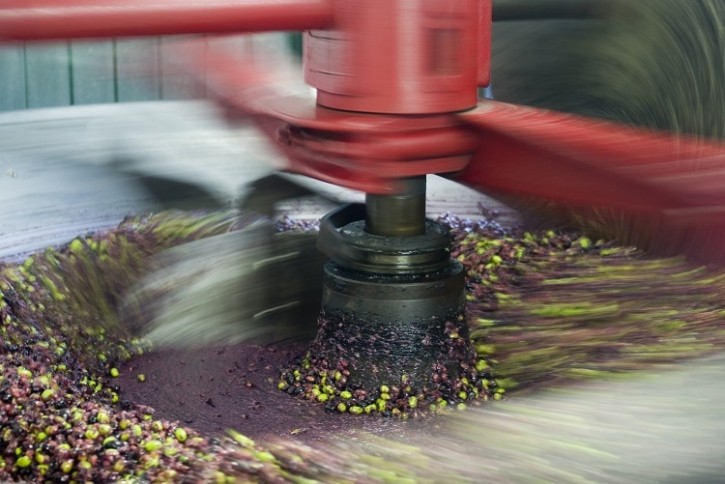
In an effort to valorise this waste, while also helping olive farmers earn more for their efforts, PhenOlives has developed patented technology capable of preventing olive pomace oxidisation.
“It’s a natural process,” CEO Chen Lev-Ari told FoodNavigator. The start-up removes the pomace from the olive mill, runs it through its proprietary machinery (about which he remained tight-lipped), and separates the by-product into different components: pulp, black water, and seeds.
The pulp is then dried and milled into a gluten-free flour, antioxidants can be extracted from the black water, and the seeds have potential to be used by other industries other than food and beverage, Lev-Avri revealed. “There is no waste.”
Nutritional benefits and application potential of olive flour
For PhenOlives, the dry, milled pomace is the star act. As a flour, it doesn’t have the standard white colouring of a refined wheat alternative, but instead is slightly brown in colour. “It has a lot of amazing properties that no other flour has on the market today,” we were told.
Part of that is the antioxidants (such as tyrosol and hydroxytyrosol) sourced from the discarded olive water, and another is the polyphenols naturally present in olives (which inspired the name PhenOlives).
Olive flour is also extremely high in fibre. Whereas a conventional plain white flour contains less than 3% fibre, PhenOlives’ olive flour contains a whopping 80%. It is also low in sugar, low in fat, low in calories, and high in carbohydrates.
Olives: a growing trend in food and drink?
PhenOlives is not the first business to recognise the potential health benefits of olives. Last year, Starbucks launched its Oleato brand which mixes coffee with extra virgin olive oil.
What Starbucks is bringing to drinks, PhenOlives is bringing to food, suggested CEO Chen Lev-Ari. “We agree that people should enjoy the benefits of olive oil every day. Our olive flour enables people the access the benefits of olive oil, through food.”
PhenOlives is targeting the bakery sector. Being neutral in taste, the gluten-free flour has enormous potential, we were told, ranging from breads to pastas, cookies and crackers. Depending on the product, a different proportion of olive flour is subbed in.
Crackers, for example, can be made with 100% olive flour, whereas a pasta is more likely to use 50%. Bread can be made with 20%, and cookies, 30%.
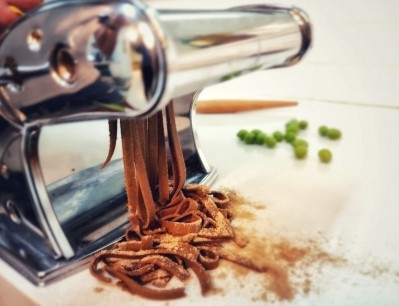
The dried pulp also has potential for other applications outside of bakery, serving as a gluten-free stabiliser for example, or else for use as a fibre supplement in the nutraceutical sector. PhenOlives is also exploring opportunities in domestic pet feed.
Is olive flour a novel food?
Although olives have been consumed for millennia, PhenOlives’ anti-oxidation process is brand-new.
In the start-up’s native Israel, olive flour has been approved as a new food. In the US, PhenOlives’ technology is currently undergoing GRAS review, and in the EU, it does not expect to require novel food approval, given the flour is a derivative of olives. Further, the olive flour process is ‘completely natural’ with ‘no chemicals or additives used’.
On ingredients lists, the start-up expects it will be appear simply as ‘olive flour’.
From a price perspective, PhenOlives wants to be competitive with other gluten-free flours on the market. “It helps that we don’t have to grow a single olive to make the flour,” the CEO explained. “Because we’re using a side stream, we’re able to keep our price in line. Our goal is to be at or below the lower-priced gluten-free flours.”
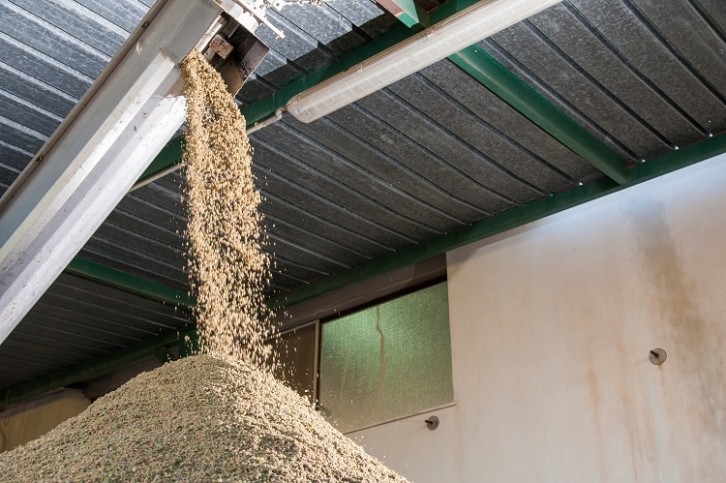
As to its business model, PhenOlives is partnering with olive mills to secure the raw material, processing it at its own sites (located relatively close to olive oil mills), and producing ingredients to sell B2B. In so doing, PhenOlives expects the mills to pay famers more for their olives.
The pomace will be sourced almost exclusively from Europe, where the vast majority of olive oil is produced. Although Israel produces olive oil, it accounts for just 0.1% of global production. PhenOlives has its eyes set on countries like Spain, Greece, Italy and Portugal.
PhenOlives has received NIS 2.8m (€698,000) from the Israel Innovation Authority, and upon closing its first funding round plans to scale the commercialisation of its olive flour, while simultaneously developing new products from the olive pulp and black water.
